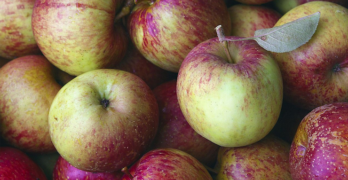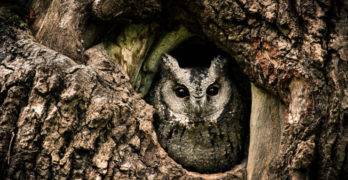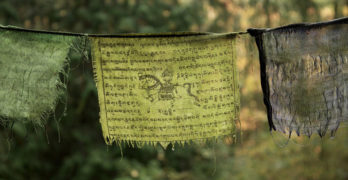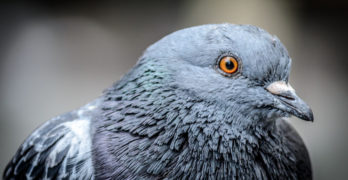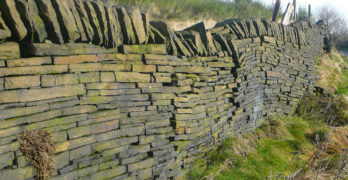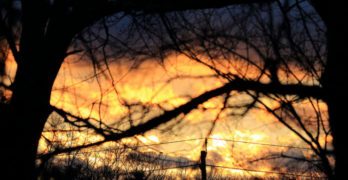Looking at Robert Frost’s poem “Mending Wall,” we’re creating our own poetic take on the act of mending walls. Come write with us!
Thank You Notes: Teachers
Thank You Notes is a monthly prompt that focuses on expressing our thanks to a particular person, place, or thing—in poems, paragraphs, or pictures. This month, we’re crafting thank-you’s to teachers.
Top 10 Dip Into Poetry Lines
We enjoy a daily sharing over Every Day Poems on Twitter, inviting you to dip into poetry with us. Check our our favorite 10 lines from the last few months.
Last Child in the Woods: Afraid of the Great Outdoors
In this week’s discussion of Last Child in the Woods we consider the way fear removes us from nature, and how a desire to protect nature can contribute to that fear.
The Pulitzer Prize for Poetry: “Olio” by Tyehimba Jess
The Pulitzer Prize-winning poetry collection “Olio” by Tyehimba Jess bends poetry our of its familiar groove to tell a story few Americans know.
Form It: A Simple Veil, Poetry Prompt
“Form It” is a poetry prompt that focuses on exploring our topic through form poetry. The prompt includes recommendations for each form’s best use! This time, we’re going to “form” a simple veil.
Life Notes: Figuring
In this Life Notes edition, a little girl’s lament turns into an evening of make-believe. If you’re feeling stressed, you might want to walk away—and into play—too.
The James Laughlin Award: Mary Hickman and “Rayfish”
The 15 ekphrastic poems in “Rayfish” by Mary Hickman, honored with the James Laughlin Award, explore culture and its meaning.
Last Child in the Woods: Green Space
In Last Child in the Woods, Richard Louv makes the case for the importance of interaction with nature on our physical and emotional well-being.
The Walt Whitman Award: “Afterland” by Mai Der Vang
In “Afterland,” winner of the Walt Whitman Award, poet Mai Der Vang explores what happened to the Hmong people after the Vietnam War.
Wall Poems: Poetry Prompt
Settled in the crevices of brick and mortar, there are poems. Written on walls in Europe and here in the States, poetry lives and breathes in cities and villages. Join us and learn a little about wall poems and where you can find some. You can even write your own wall poem.
How To Dress Like a Reading Diva—And Read ‘The Sleepy Little Alphabet’
Some self-doubt in the shoe department leads to a surprising reflection on how to teach reading with The Sleepy Little Alphabet—and love it.
Committing Prufrock: 10 Reasons to Say Yes to Memorizing Poetry
Why would someone take a dare to commit The Love Song of J. Alfred Prufock to memory? Sandra Heska King has 10 great reasons to say yes to a poetry dare.
Audubon’s Birds and the Habits of Nature Writing
John James Audubon’s meticulous and detailed approach to studying birds can inspire not only the nature writer but anyone wishing to write more vividly.
Poets and Poems: Denise Riley and “Say Something Back”
“Say Something Back” by British poet Denise Riley considers the ways we do and don’t communicate, almost a plea to listen and hear each other.
Animate: Wall Poetry Prompt
This week’s poetry prompt asks you to imagine yourself as a division of space— a wall. Join us, animate yourself into the geometry of a wall, and create poetry.
Reading in the Wild: April’s Pages
“Reading in the Wild” identifies 5 main characteristics of ‘wild readers’—the people most likely to embrace literacy for life. Are you a wild reader? Do you want to be? Let’s make it happen.
Tea Quest: Tupelo Honey Tea Loft, Millvale, Pa.
Laura Brown’s tea quest takes her to Tupelo Honey Teas Cafe and a selection of Pittsburgh-specific tea blends especially for Yinzers n’at.
Book Club Announcement: Last Child in the Woods
Join us for our upcoming book club on Richard Louv’s Last Child in the Woods: Saving Our Children from Nature-Deficit Disorder.
Poetry and World War I: It Wasn’t Only England
“Everything to Nothing” by Geert Buelens provides a fascinating look into the breadth and depth of the role poetry played in World War I.

